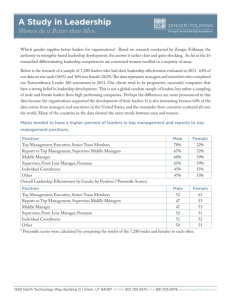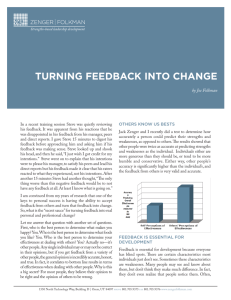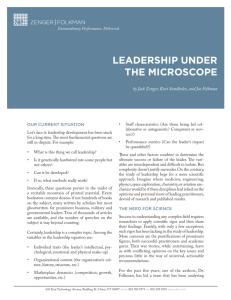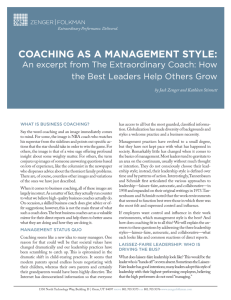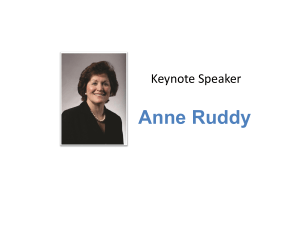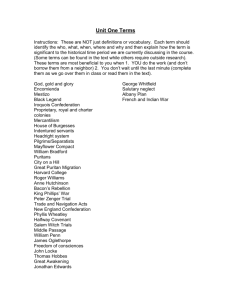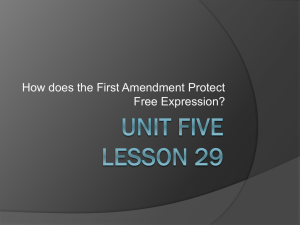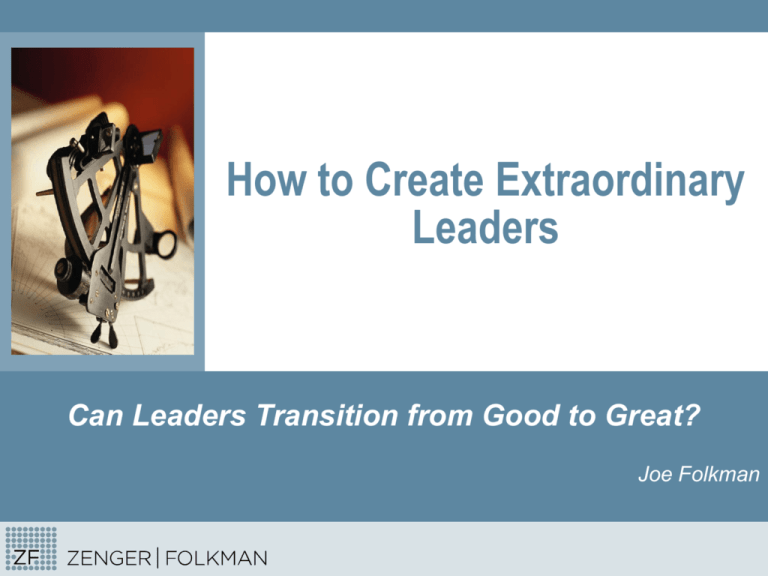
How to Create Extraordinary
Leaders
Can Leaders Transition from Good to Great?
Joe Folkman
Question 1:
Which Leadership Competencies Create the Most Leverage?
• Two years researching the impact of leadership
performance and the key behaviors that great
leaders demonstrate
• Data set of 200,000 evaluations on 20,000
people
• Contrasted the highest-performing 10% to the
lowest-performing 10%
• The approach: Lead with the data!
• The result: New insights that fundamentally
change the way we think about leadership
development
Copyright 2012 Zenger | Folkman. All rights reserved.
2
16 Differentiating Competencies
Focus on
Results
• Drives for
Results
• Establishes
Stretch Goals
• Takes Initiative
Leading
Change
• Develops
Strategic
Perspectives
• Champions
Change
• Connects the
Group to the
Outside World
Character
• Displays High
Integrity and
Honesty
Interpersonal
Skills
Personal
Capability
• Communicates
Powerfully and
Prolifically
• Inspires and
Motivates
Others to High
Performance
• Builds
Relationships
• Develops
Others
• Collaboration
and Teamwork
• Technical/Profe
ssional
Expertise
• Solves
Problems and
Analyzes Issues
• Innovates
• Practices SelfDevelopment
Copyright 2012 Zenger | Folkman. All rights reserved.
3
Question 2:
Can a Validated Competency Model Predict?
Copyright 2012 Zenger | Folkman. All rights reserved.
4
Average Percent Turnover
Leadership vs. Turnover
20
18
19
16
14
14
12
10
8
9
6
4
2
Extraordinary
leaders are
much better at
holding on to
their people.
0
Bottom 30%
Poor Leaders
Middle 60%
Top 10%
Good Leaders
Great Leaders
Copyright 2012 Zenger | Folkman. All rights reserved.
5
Percent of Employees that “Think about
Quitting”
% of Employees in Work Groups
That “Think about Quitting”
Large Financial Services Company
Results based
on 2865
Leadership Effectiveness Percentile
leaders “Think about Quitting” percentage
is the percent of employees responding neutral or negative to the item “I rarely think about
quitting my job and going to anther company.
Copyright 2012 Zenger | Folkman. All rights reserved.
Impact of Leadership Effectiveness on Sales
Results from 170 Sales Leaders
Copyright 2012 Zenger | Folkman. All rights reserved.
7
Leadership vs. Net Income
Net Income
$4.5MM
Great leaders
generate much
higher income.
$2.4MM
($1.2MM)
Bottom 10%
Poor Leaders
Middle 80%
Good Leaders
Top 10%
Great Leaders
Copyright 2012 Zenger | Folkman. All rights reserved.
8
Leadership Effectiveness vs. Employee
Satisfaction/Commitment
Great Leaders
Make a Great
Difference
Good Leaders
Have an
Adequate Impact
Poor Leaders
Create
Dissatisfaction
Based on 23,800 Leaders
Copyright 2012 Zenger | Folkman. All rights reserved.
9
Employee Engagement versus Leadership
Effectiveness across the World
Employee Engagement Percentile
100
90
80
70
United States
Canada
Europe
South America
Middle East
Asia
Africa
60
50
40
30
20
10
0
Bottom
10%
11th - 35th 36th - 65th 66th - 90th Top 10%
Copyright 2012 Zenger | Folkman. All rights reserved.
Leadership Effectiveness vs. Employee
Commitment
Results from 2,935 Leaders in a Oil Company
90
Employee Commitment Percentile
80
70
60
50
40
30
20
10
0
Bottom 10%
Next 25%
Middle 30%
Next 25%
Top 10%
Leadership Effectiveness Percentile
Copyright 2012 Zenger | Folkman. All rights reserved.
Leadership Effectiveness vs. Employee
Commitment
Results from 564 Leaders in a Global Professional Services Firm
70
Employee Commitment Percentile
60
50
40
30
20
10
0
Bottom 10%
Next 25%
Middle 30%
Next 25%
Top 10%
Leadership Effectiveness Percentile
Copyright 2012 Zenger | Folkman. All rights reserved.
Leadership Effectiveness vs. Employee
Commitment
Results from 199 Leaders in a Large Broadcaster
90
Employee Commitment Percentile
80
70
60
50
40
30
20
10
0
Bottom 10%
Next 25%
Middle 30%
Next 25%
Top 10%
Leadership Effectiveness Percentile
Copyright 2012 Zenger | Folkman. All rights reserved.
Leadership Effectiveness vs. Employee
Commitment
Results from 601 Leaders in a Global Publishing Company
90
Employee Commitment Percentile
80
70
60
50
40
30
20
10
0
1st - 19th
20th - 39th
40th - 59th
60th - 79th
80th - 100th
Leadership Effectiveness Percentile
Copyright 2012 Zenger | Folkman. All rights reserved.
Leadership Effectiveness vs. Employee
Commitment
Results from 2,881 Leaders in a Financial Services Company
90
Employee Commitment Percentile
80
70
60
50
40
30
20
10
0
1st - 19th
20th - 39th
40th - 59th
60th - 79th
80th - 100th
Leadership Effectiveness Percentile
Copyright 2012 Zenger | Folkman. All rights reserved.
Question 3:
How Can Leaders Improve?
Average
at Everything
A
B
C
D
E
F
G
H
Will fixing one or
two less-positive
issues have a
dramatic impact on
leadership
effectiveness?
I
J
K
L
M
N
O
P
1
2
3
4
Typical Approach
to Development
• Evaluate current
level of
effectiveness
• Identify areas of
strength and
weakness
• Create an action
plan to improve
areas of
weakness
5
Copyright 2012 Zenger | Folkman. All rights reserved.
16
What Does Performance Improvement Mean
to Most People?
Fixing Weaknesses!
Copyright 2012 Zenger | Folkman. All rights reserved.
17
Impact of Leadership Effectiveness Without
Any Perceived Strengths
Number of Strengths
Copyright 2012 Zenger | Folkman. All rights reserved.
18
Impact of One Strength on Overall Perception
of Leadership Effectiveness
Number of Strengths
Copyright 2012 Zenger | Folkman. All rights reserved.
19
Three Strengths Raise Leadership
Effectiveness to the 81st Percentile
Number of Strengths
Copyright 2012 Zenger | Folkman. All rights reserved.
20
Focusing Development on Weaknesses
Works Well When. . .
. . . People Have Fatal Flaws
A
B
D
E
100
F
Strong negative
data on an
issue can
cripple a
person’s
leadership
effectiveness
G
H
I
J
K
L
M
N
O
Overall Leadership Effectiveness
(Percentile)
Leadership Competencies
C
90
80
70
60
50
40
30
18
20
10
0
P
1
2
3
4
5
Fatal Flaws & No
Profound
Strengths
Copyright 2012 Zenger | Folkman. All rights reserved.
21
Question 4:
What is the impact of building strengths & fixing fatal flaws?
Copyright 2012 Zenger | Folkman. All rights reserved.
22
Case Study – 80 Executives work to
improve their leadership effectiveness
Overall Leadership Effectiveness
Percentile
Comparison of Pre-Test and Post-Test Results
66
65
64
62
60
58
57
56
54
52
Pre-Test
Post-Test
Study based on results of 80 leaders
Copyright 2012 Zenger | Folkman. All rights reserved.
23
15 of the 80 leaders have “Fatal Flaws”
and 11 worked hard to improve
Pre-test
Post-test
90
80
70
Percentile
60
50
50
40
30
20
20
10
0
Pre-test
Post-test
Copyright 2012 Zenger | Folkman. All rights reserved.
24
Impact of Building Strengths versus Fixing
Weaknesses
Pre-test
Post-test
90
82
80
70
Percentile
60
+26
66
54
+12
56
50
40
30
20
10
0
*Fixed Weaknesses
Built Strengths
* Fixing weaknesses excludes those fixing fatal flaws
Copyright 2012 Zenger | Folkman. All rights reserved.
25
Leaders who build strengths doubled the
employee engagement percentile scores
Copyright 2012 Zenger | Folkman. All rights reserved.
26
Question 4:
How do you build a strength?
Copyright 2012 Zenger | Folkman. All rights reserved.
27
Most people use a linear approach
Current Approach to Change Plans
Current
Performance
People
question
ability on
technical
expertise
Desired
Future
Performance
More
Better
Faster
Smarter
People have
confidence in
technical expertise
Copyright 2012 Zenger | Folkman. All rights reserved.
Moving from Poor to Good
Leaders with a weakness in Technical
Expertise might do the following:
Technical/
Expertise
•
•
•
•
•
Learn the skills
Take classes, read books and journals
Study or mentor with experts
Practice the skills
Get coaching and feedback
Copyright 2012 Zenger | Folkman. All rights reserved.
29
The problem with the direct approach is that often
you can’t get there from here
Navigating behavioral change is not especially
different from geographical navigation.
Copyright 2012 Zenger | Folkman. All rights reserved.
30
A Competency Companion to Technical Expertise
Interpersonal
Skills
Differentiating
Competency
Competency
Companion
Technical
Expertise
Copyright 2012 Zenger | Folkman. All rights reserved.
31
A Competency Companion to Honesty and Integrity
Competency
Companion
Assertiveness
Differentiating
Competency
Honesty &
Integrity
Copyright 2012 Zenger | Folkman. All rights reserved.
32
Companion Behaviors for Making Personal
Change
Willing to
Take on
Challenge
Clear
Goals and
Priorities
Optimism
Accepting
Feedback
Ability to
Change
Integrity
And Trust
Concern
For
Others
Develops
Others
Innovation
Copyright 2012 Zenger | Folkman. All rights reserved.
33
Question 5:
How does leadership at the top impact the bottom?
Copyright 2012 Zenger | Folkman. All rights reserved.
34
Average Leadership Effectiveness by Level
Leadership Effectiveness by Level
Leadership Effectiveness Percentile
100
90
80
70
60
50
40
30
20
10
0
Top
Middle
Lower
Results from 5,285 leaders in 5 different organizations
Copyright 2012 Zenger | Folkman. All rights reserved.
Average Gap Between Levels is 14.5
Percentile Points
Leadership Effectiveness Percentile
Leadership Effectiveness by Level
100
90
80
70
60
50
40
30
20
10
0
Level 1
Level 2
Level 3
Level 4
Leadership Level
Copyright 2012 Zenger | Folkman. All rights reserved.
What is the level of leadership
effectiveness in your organization?
Overall Leadership Effectiveness
Levels of Leadership Effectiveness
70
65
59
60
51
50
43
38
40
30
20
10
0
Telecommunications
Co.(7000 Leaders)
Large Bank (8700
Leaders)
Insurance Co. (80
Top Leaders)
Snack Food Co. Ceo Global Information
& DR (9 Leaders)
Co. (700 Leaders)
Copyright 2012 Zenger | Folkman. All rights reserved.
37
Thank you!
you!
Thank
Zenger Folkman • www.zengerfolkman.com
Zenger Folkman • www.zengerfolkman.com
Copyright 2012 Zenger | Folkman. All rights reserved.

